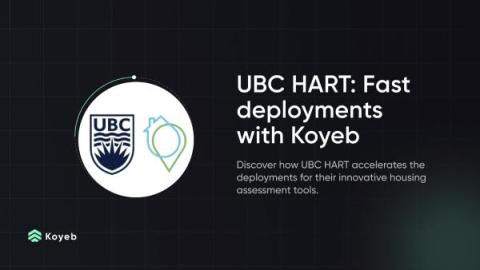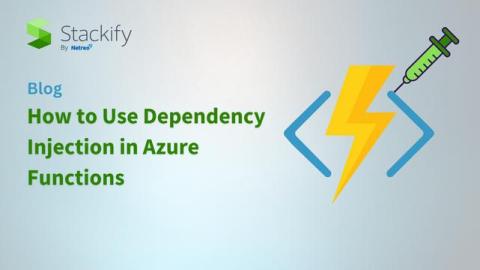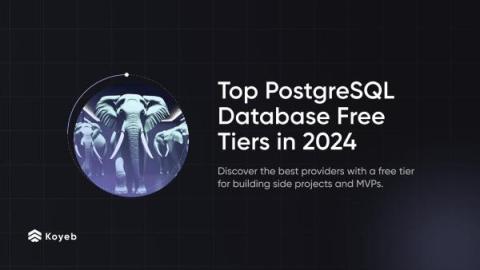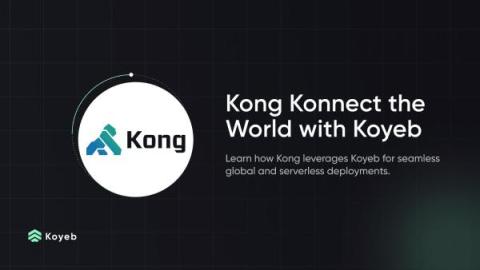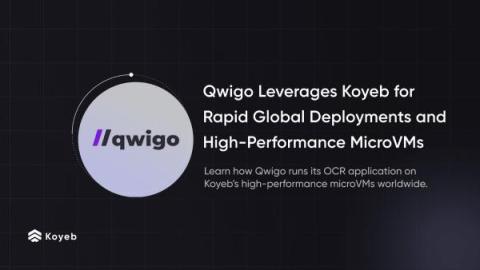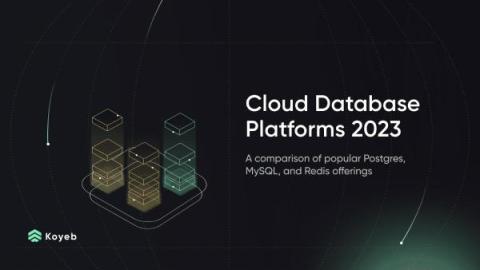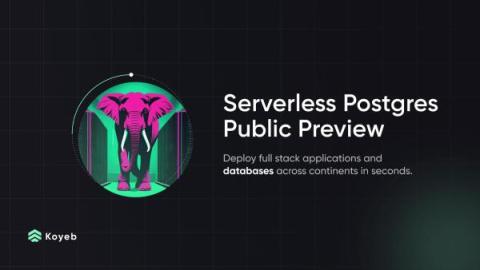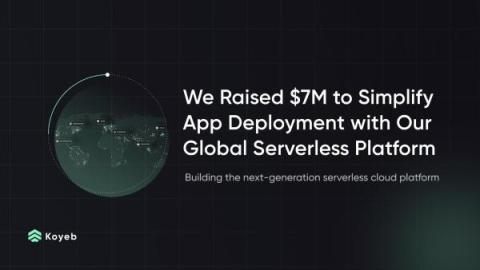Systems | Development | Analytics | API | Testing
Serverless
How to Use Dependency Injection in Azure Functions
Top PostgreSQL Database Free Tiers in 2024
Kong Konnect the World: Seamless Global and Serverless Deployments Powered by Koyeb
Kong Konnect is an API lifecycle management platform streamlining the connectivity between your APIs and microservices. The control plane is hosted in the cloud by Kong and available across the US, EU, and AU, while the data plane is managed by you within your preferred network environment, like Koyeb.
Qwigo Leverages Koyeb for Rapid Global Deployments and High-Performance MicroVMs
Meet Qwigo, a creative web and mobile development delivering exceptional websites and mobile apps to grow your business. When Qwigo needed to build an OCR (Optical Character Recognition) service, they started to look for a high-performance solution within their budget to deploy and run their application. Qwigo was happy to find Koyeb, a managed infrastructure solution that checked all their boxes and more.
Which Cloud Database Platform to Choose for Your Applications
If your application needs persistent data, you are going to need a database. Easier said than done because managing a database can be a challenge. Not only do you need to set up, maintain, scale, and patch databases, but also you need to create strong backup policies, ensure sharding and replications. Long story short, managing a database is time-consuming and requires a dedicated and skilled team, which is why people opt for managed databases, sometimes referred to as DBaaS or Database as a Service.
New Eco Instances: the most affordable way to deploy apps globally
Today, we're making global deployment more accessible than ever with our new Eco Instance types, starting at $1.61 per month ($0.0000006 per second). We're also increasing the resources of the Free Instance type, giving you more to work with at no cost.
Making Flink Serverless, With Queries for Less Than a Penny
Imagine easily enriching data streams and building stream processing applications in the cloud, without worrying about capacity planning, infrastructure and runtime upgrades, or performance monitoring. That's where our serverless Apache Flink® service comes in, as announced at this year’s Current | The Next Generation of Kafka Summit.
Serverless Postgres Public Preview
We're excited to announce the Koyeb Serverless Postgres public preview - a fully managed, fault-tolerant, and scalable serverless Postgres Database Service. What do all modern applications have in common? They all have APIs, workers, and databases. Deploying APIs and workers with Koyeb has long been possible. Starting today, you can spin up databases too! Using Koyeb Serverless Postgres, you can easily start a resilient Database Service alongside your apps in a few seconds.
We raised $7M to Simplify App Deployment with our Global Serverless Platform
We are thrilled to share that we’ve raised $7M in seed funding! At Koyeb, we simplify app deployment with our global serverless platform. We provide an easy way to deploy full-stack applications and databases in production, everywhere, in minutes. We’re focused on allowing developers and businesses to seamlessly build, run, and scale any application globally, with no code rewrite or infrastructure management.


